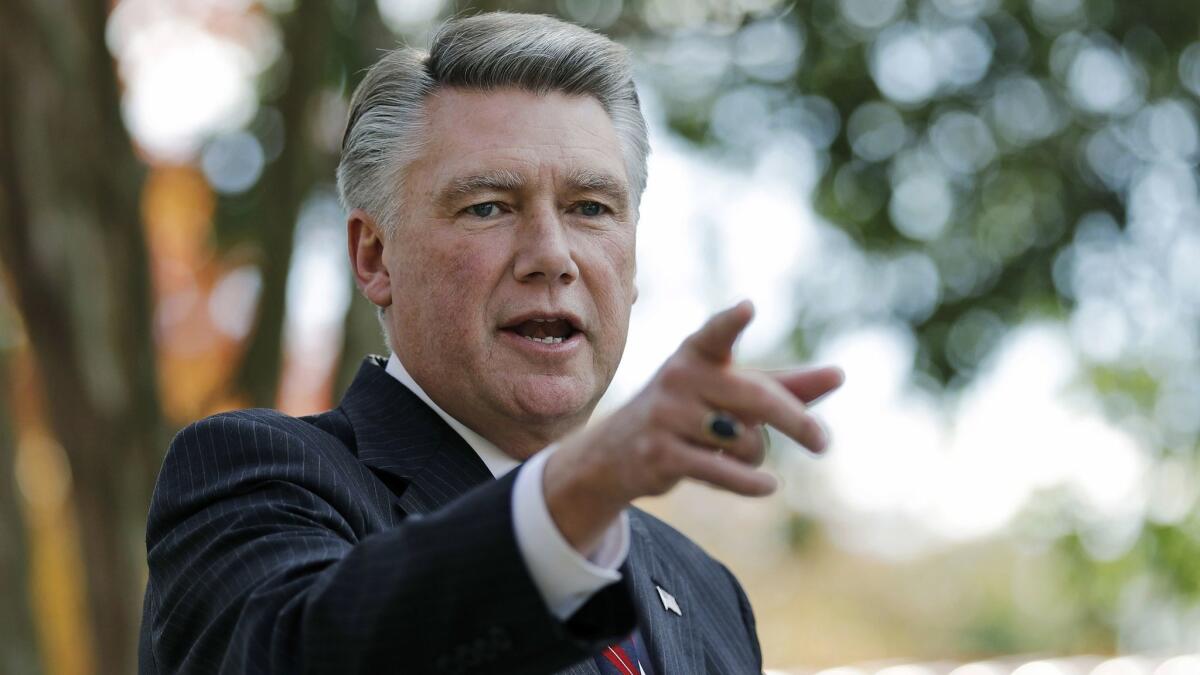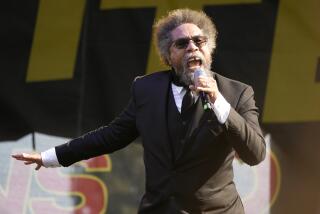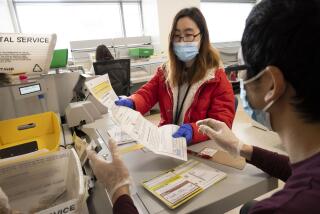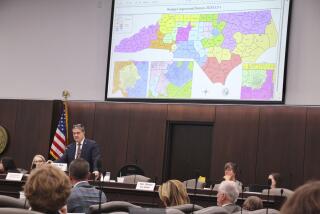Documents detail how absentee ballots were gathered in disputed North Carolina race

Reporting from RALEIGH, N.C. — Affidavits released Sunday by North Carolina’s elections board allege absentee ballots were collected from voters by the man at the center of vote fraud allegations or those working for him.
These latest documents focus on last month’s disputed 9th Congressional District race, the year’s only unresolved congressional election. Investigators are looking into whether Leslie McCrae Dowless Jr. and others working on behalf of Republican candidate Mark Harris ran an illegal operation to collect large numbers of absentee ballots from voters in at least two counties.
In the batch of affidavits released Sunday, registered voter Christopher Eason of Bladenboro alleges he gave his signed but otherwise blank mail-in absentee ballot directly to Dowless, who had been hired by the chief strategist for Harris’ campaign. It’s illegal for anyone other than a close relative or guardian to take a person’s ballot.
“I signed the absentee ballot envelope but left the ballot completely blank. I did not make any selections in any of the contests on the ballot,” Eason said in his affidavit signed Dec. 7, adding Dowless came to his home and asked for his absentee ballot.
Another voter, Hazel Guyton of Bladenboro, said in an affidavit that she filled out her absentee ballot and Dowless and a woman stopped by to pick it up. She said he’d been “doing that for me for several years,” though she states she suffers no legal disabilities.
Dowless is a “person of interest” in an ongoing criminal investigation into irregularities in the 9th District race. His attorney, Cynthia Adams Singletary, did not answer calls on Sunday but has asserted previously that Dowless hasn’t broken any campaign laws.
Also released Sunday was an analysis by a Harvard University professor who determined rates of unreturned absentee ballots in two 9th District counties were “extreme statistical outliers.”
Stephen Ansolabehere, a government professor at Harvard, said absentee mail voting patterns in Bladen and Robeson counties differed considerably from other North Carolina counties in two ways: The “exceedingly high rates” of unreturned ballots and the performance of the Republican candidate in those areas.
“Mark Harris greatly over-performed in these two counties when compared with what one might have expected based on patterns elsewhere,” he wrote in his analysis.
The affidavits and the absentee ballot analysis for Robeson County and the portion of Bladen County in the 9th District were filed by attorneys for Democrat Dan McCready, who trailed Harris by 905 votes in unofficial results. Harris, McCready and candidates in a few other local races affected by the absentee ballot probe had until Friday to submit evidence for the board to review in advance of its Jan. 11 hearing.
Neither Harris nor his campaign provided any such evidence or affidavits before the deadline, elections board lawyer Josh Lawson said Sunday. The candidates have until Jan. 6 to submit legal briefs to the board, which could ultimately order a new election or certify the results. The certification delay means no one will be representing the south-central 9th District when the new session of Congress begins Jan. 3.
Other affidavits from residents provided by McCready’s attorneys and released Sunday also alleged that Dowless had held hundreds of absentee ballots unlawfully or “trashed” them as a way to affect election outcomes.
In a separate matter before state judges, elections board Chairman Joshua Malcolm said in an affidavit Friday that the board’s investigative staff members have conducted 100 interviews related to the election irregularities and are reviewing more than 182,000 documents produced from 12 subpoenas.
More to Read
Sign up for Essential California
The most important California stories and recommendations in your inbox every morning.
You may occasionally receive promotional content from the Los Angeles Times.










